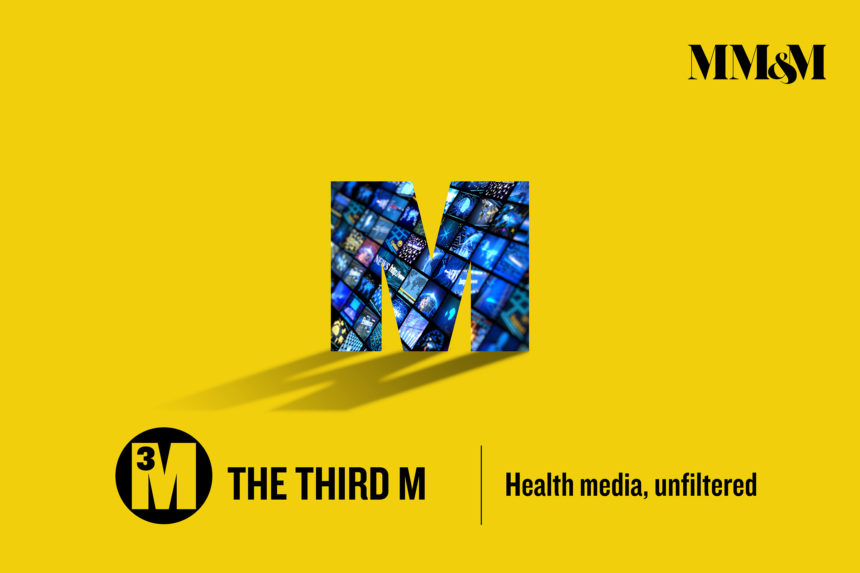Over the course of his career at Univision Communications, Jorge Daboub has continuously touted the value of his company’s audiences to pharma. He has attempted to shine a light on health disparities that disproportionately affect Hispanics, framing efforts to address them as both a business opportunity and a moral imperative. He’s been quick to share statistics that bolster his case – among others, that once Hispanic people are diagnosed with a health condition, they start treatment 20 days sooner and stay on it 49 days longer than other ethnic groups.
When asked if pharma has heard and acted upon his vocal leadership, Daboub, now EVP, media sales, pauses before responding. His answer is telling, in that it focuses more on what he believes to be a dream demographic for pharma marketers.
“With certain multicultural segments, there is distrust when it comes to pharmaceuticals,” Daboub says. “But with this one, there’s built-in trust. From a cultural standpoint, there is a tremendous respect for physicians and pharmacists.”
It’s a case Daboub has been making for some time. About a decade and a half ago, he was given a challenge by an insurance client: To find a way to reach so-called “young invincibles” in the Univision audience. While researching that particular cohort, Daboub kept hearing a similar refrain – that such individuals craved health content, but weren’t seeing much of it in their native Spanish.
To deliver on that mandate, Daboub and his Univision peers teamed with Dr. Robert Valdez and leaders from the Kaiser Family Foundation, the American Diabetes Association and the Department of Health and Human Services’ Office of Minority Health on Salud es Vida (Lead a Healthy Life). “The mission was, and is, to effect positive change in health behavior among Hispanic audiences by focusing on health and wellness, illness prevention and access to care,” Daboub says.
Univision has affirmed those public-health bona fides amid the Covid-19 crisis. To assist small businesses, it created Juntos Frente al Coronavirus (Together Against Coronavirus) public groups on Facebook. Local Univision stations deployed news and marketing resources to bolster the company’s Juntos Frente al Coronavirus Call Center, which took calls from community members needing assistance or information.
That degree of community-mindedness, according to National Alliance for Hispanic Health EVP Adolph Falcon, is atypical among media organizations – and especially among media execs. “Jorge has this mission-driven view of the work he does,” Falcon explains. “He’s very dedicated to making sure that our communities have the best information, but also that there’s a respect and a celebration of culture. That’s particularly important when there are so many messages out there that exploit negative stereotypes about Hispanic communities. It’s very different working with him, and with Univision, than with other media groups and people.”
Daboub doesn’t believe pharma is failing Hispanic audiences so much as underserving them. His primary concern is that most marketing and content efforts exclude the cultural nuance these audiences value. To that end, he notes that many materials are simply translated from English into Spanish – or not translated at all.
“When they do [programs and content] in Spanish, it works. When it’s fully integrated into the overall brand strategy, it works,” Daboub says. “But a lot of the time it’s a bolt-on.”
Even as he bemoans the lack of focused attention from pharma, Daboub understands it. Univision teams have dealt with the usual frustrations – momentum-halting movement among leaders of internal brand teams – but also ones that suggest a degree of market unawareness.
“Part of it is that companies are located in areas where they don’t really see the marketplace,” Daboub explains. “They don’t experience our community as they would in Miami or Los Angeles or San Antonio. Sometimes it’s hard to relate to what you don’t see.”
Univision wants to be the media organization that prompts pharma marketers to disrupt the status quo. Daboub has heard nearly every response to the question of why the industry devotes only so much attention to Hispanic audiences. “You get, ‘We don’t have enough resources and we need to be careful about where we invest’ and ‘We can reach Hispanic audiences on English-language media,’” he recalls.
It goes without saying that Univision has counter-arguments at the ready. Daboub notes that that while marketers “can get ABC viewers on CBS and CBS viewers on Fox,” there’s nowhere near as much overlap among Univision audiences. Univision also has data on its side, especially for big-dollar DTC advertisers. The network ranks behind only the big-four U.S. networks in terms of overall viewership, independent of language preference. It reports that 83% of its audience is “exclusive and not reached on any of the top 10 English-language networks.”
As for what pharma should know about Univision and its sizable audience going forward, Daboub is happy to provide a blueprint. “I’d like them to know that you don’t reach all Hispanics through English-language TV. I’d like them to know that this is an audience actively looking for health solutions,” he says.
And Univision would be happy to help any and all latecomers catch up. “We know how culture impacts behavior, and there’s no category as significant for that as health,” Daboub continues. “We’ve worked with medical/legal and we’ve worked with the FDA. We can help clients and partner agencies adapt their communications to Spanish.”
Expect even more of a full-court press from Univision as pharma marketing emerges from the Covid haze into a general market environment that remains highly and frustratingly saturated. “Imagine that you can start advertising to a big audience for the first time,” Daboub says. “Well, that’s almost what you have with this community.”
From the August 01, 2020 Issue of MM+M - Medical Marketing and Media








